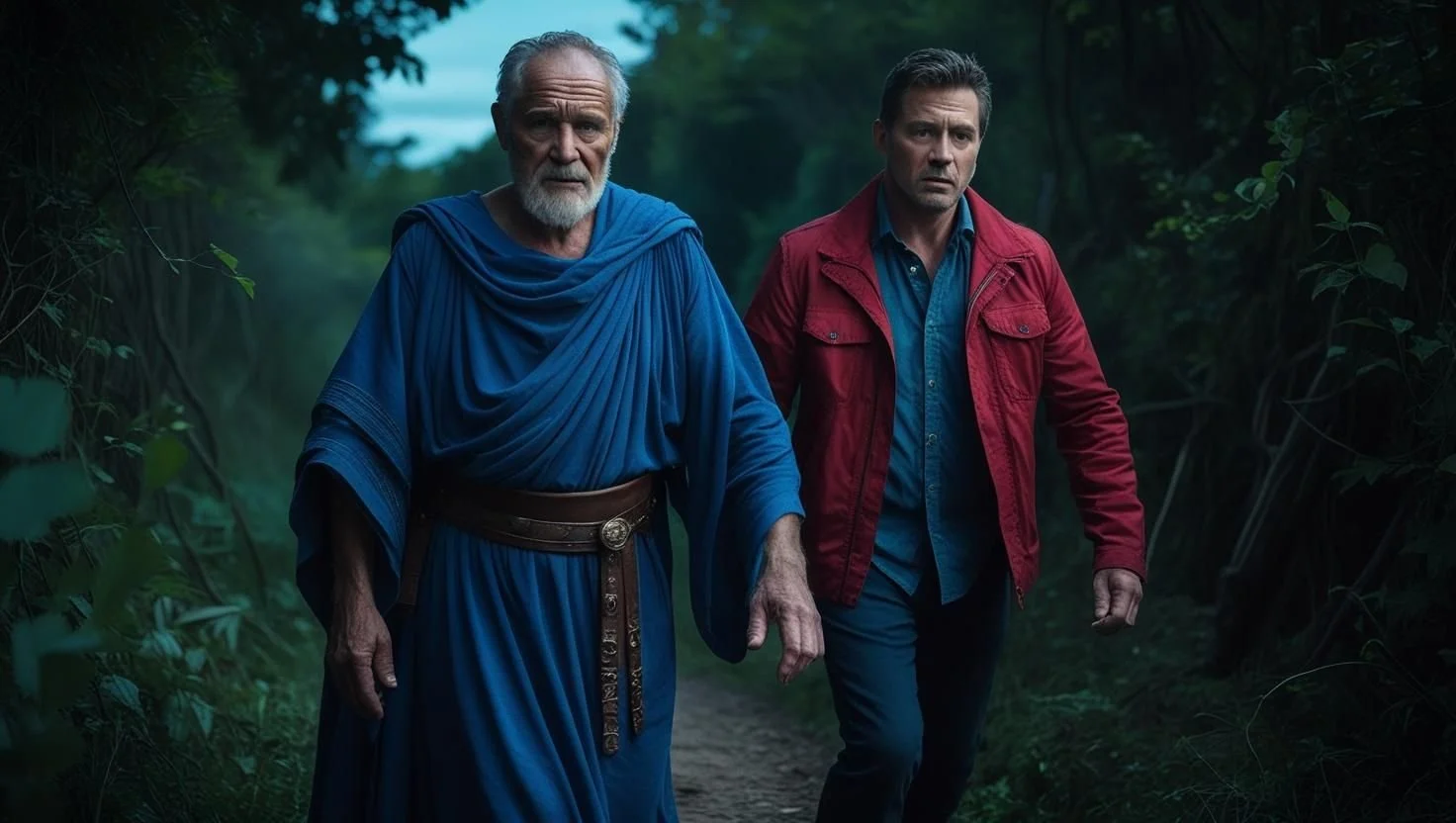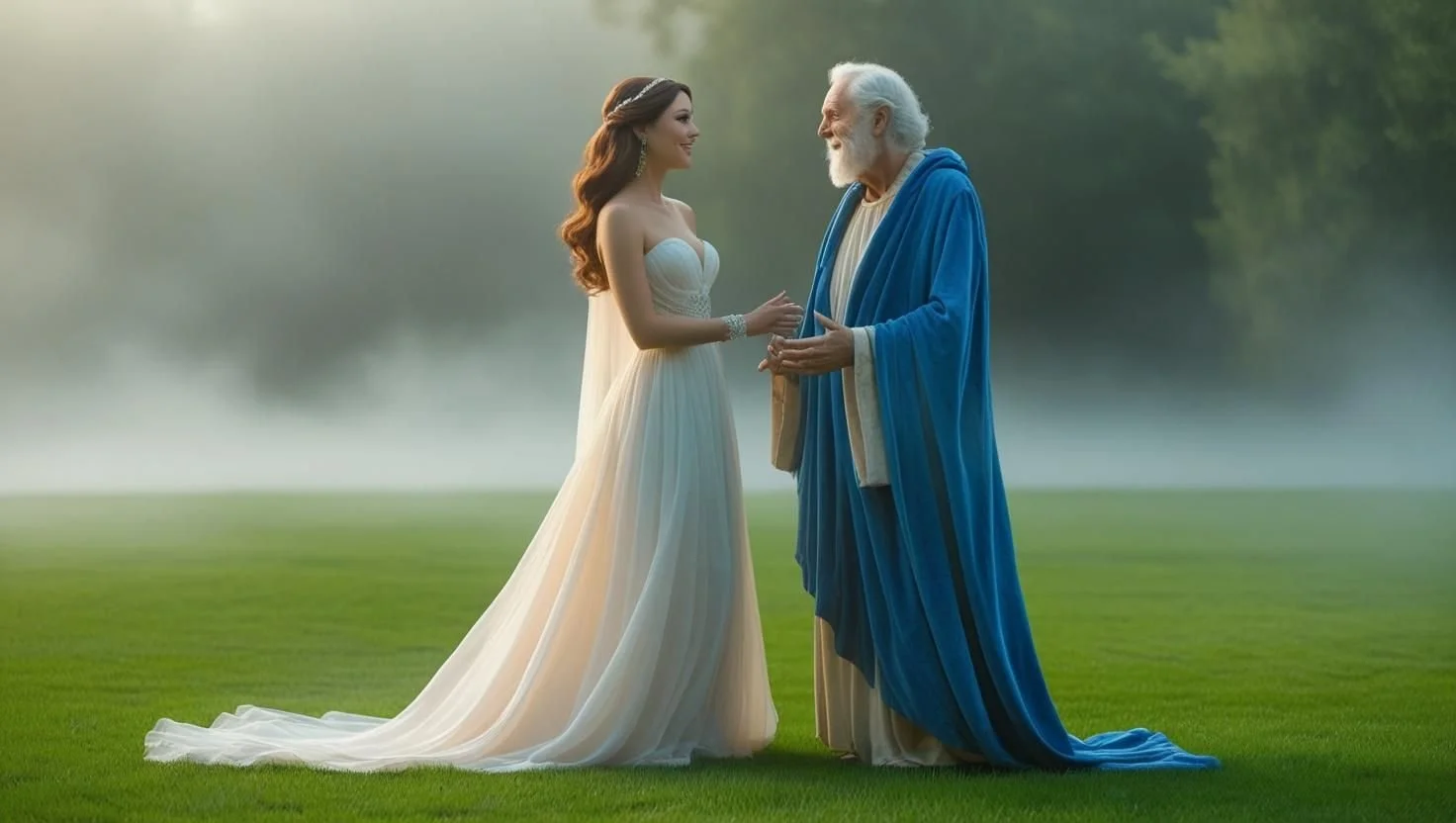Dante and Virgil arrive at hell's entrance.The words above the opening are cryptic, even perhaps a bit heretical. And Virgil's response is strange. He gives the pilgrim Dante a cheerful or happy glance? Why? In any event, the two of them are on their way. So abandon hope!
Read MoreBeatrice has answered all of Virgil’s questions . . . and even met him with tears, something that apparently is even more powerful than words. And Virgil has finally bested Dante by giving him purpose and hope, both bound up in desire. The pilgrim needs nothing else to set off across the cosmos.
Read MoreVirgil and Beatrice are in a battle of words. They must use them right to get what they want--to get Dante on his way across the known universe. In the heat of their argument, their rhetoric breaks down in strange and not fully understandable ways that complicate INFERNO right at its start.
Read MoreVirgil answers Dante’s hesitancy by calling it what it is “cowardice.” He then sets into a story to explain how he came to find the pilgrim in the dark wood. He tells the story of meeting Beatrice and their rhetorical games, the way she used outright flattery to get him to save the pilgrim.
Read MoreOur pilgrim, Dante, looked to be on his way across the known universe. But he’s stopped by his doubts. To assuage them, he decides to engage in some rhetorical games with the classical poet Virgil, all in an attempt to figure out if he has permission to walk this path (and perhaps if the poet has permission to write this poem).
Read MoreHere’s a chance to look back on INFERNO, Canto I, in all of its strangeness, its lyricism, and its knottiness. We’ll look at where we’ve been AND where we’re going: a glance out across the whole poem. And we’ll talk about Dante’s wild and incredibly difficult poetics, the almost impossible structure of the lines and stanzas he chose for this great masterpiece.
Read MoreVirgil morphs from a classical poet to a prophet worthy to be with Isaiah and Ezekiel. It’s a stunning twist from the expected. Virgil tells about the pilgrim’s journey, the tortured history of the Italian peninsula, and even hints at the end of the conflict on the Italian peninsula, if not of all things entirely.
Read MoreJust as our pilgrim Dante is about to fall back into despair, Virgil materializes in front of him. The classical poet shows up in all his humanness: fallible, truth-telling, preening, respectful, and maybe even self-doubting. Virgil as the allegory of reason? No, just a damned man trying to save another man from the same fate.
Read MoreOur pilgrim may have started with the best of hopes but he’s blocked on that slope by three beasts: a gawdy leopard, a roaring lion, and a ravenous wolf. They send him falling back down toward that dark wood with no hope in sight . . . until a ghostly presence materializes in front of him.
Read MoreOur pilgrim begins his climb away from that terrifying wood. The lake of his heart is momentarily calmed as he begins to ascend a mountain with the sun coming up over its shoulder at dawn. It all looks to be going well, that he’s found his own way out. But this is not his journey. This way does not lead across the known universe.
Read MoreDante remains something of a mystery, even today. We have over seven hundred years of murk between us, clouding our understanding of who he was. Let’s talk about what we know and what we don’t. And let’s set the poem in its historical context: the late 1200s and early 1300s CE.
Read MoreWe’re at the beginning of a walk across the known universe (at least as Dante understood it). A middle-aged man finds himself in a dark wood and has no real clue how he got there. He’s on his own in a medieval world in which being without protection means almost certain death.
Read MoreAn introductory episode to the sweep of the podcast WALKING WITH DANTE. A bit about how we’ll proceed through The Divine Comedy and a bit about who I am. But mostly, just a deep breath to get you ready for the journey ahead.
Read More











